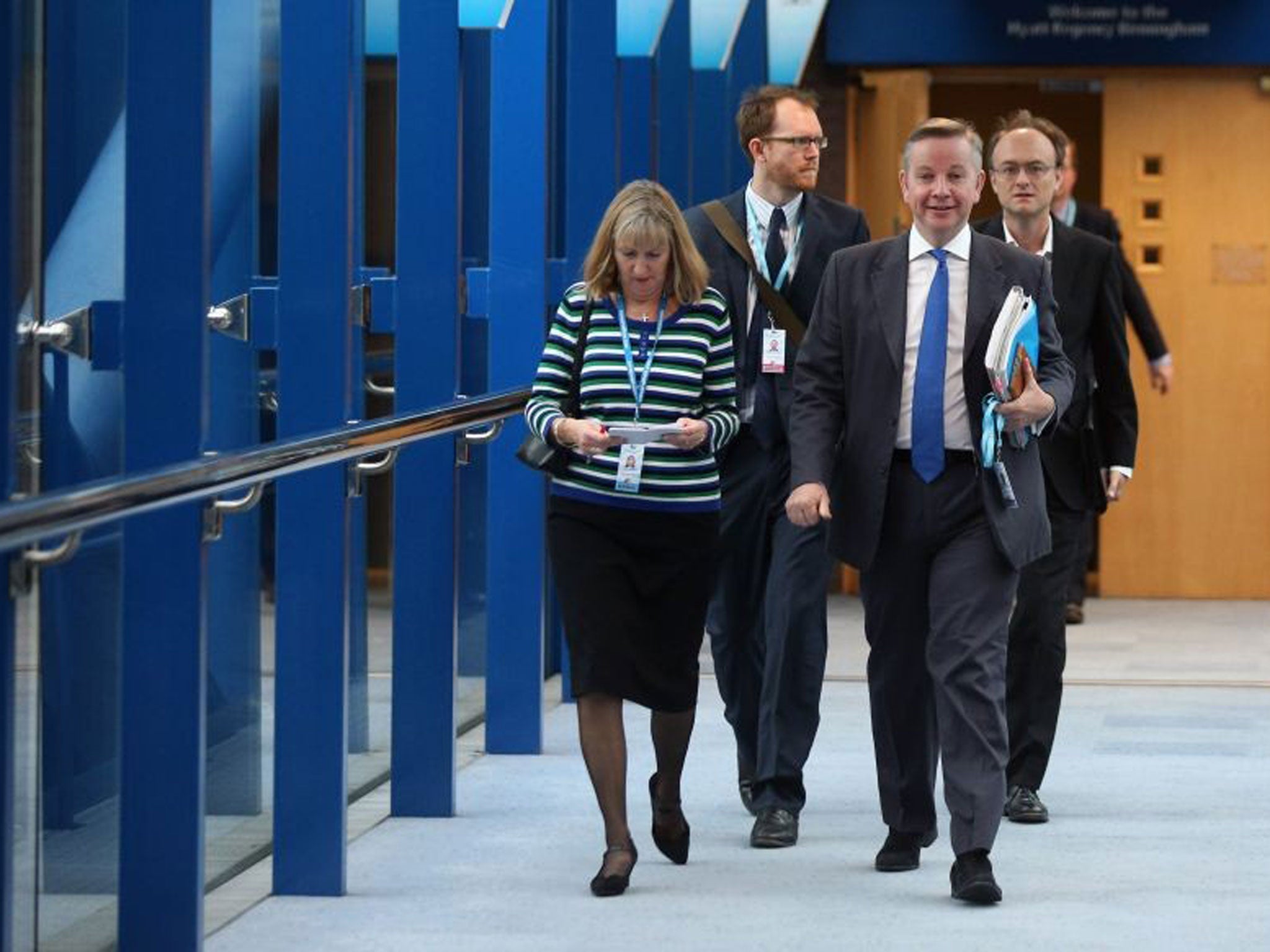Michael Gove held talks with 'IQ genes' professor
Meanwhile, Education Secretary's adviser is under fire for praising academic's controversial theory and saying free schools are at risk of 'fraud and disastrous teaching'

Michael Gove held talks with a leading scientist who believes that genetics, not teaching, plays a major part in the intelligence of schoolchildren, The Independent on Sunday can reveal.
Professor Robert Plomin, the world's leading behavioural geneticist, met the Secretary of State for Education and ministers at the Department for Education in the summer. Mr Gove's policy adviser, Dominic Cummings, provoked outcry yesterday when it emerged he had backed Professor Plomin's research that genes accounted for up to 70 per cent of a child's cognitive abilities. Mr Cummings, in a 250-page "private thesis", said the link between intelligence and genetics had been overlooked in the education system and wanted to introduce Professor Plomin to ministers to redress the balance.
A spokesman for Mr Gove refused to respond when asked three times whether the Education Secretary also believed intelligence was genetic. "Professor Plomin has given a few talks to different groups including ministers," the spokesman said.
"[He] suggested lots of different things, for example, that genetic research might allow us to help those with learning difficulties much earlier and more effectively."
Linking intelligence to genes has long been controversial, but Professor Plomin has conducted research showing up to 70 per cent heritability for reading and maths tests at age seven, nine and 12, while scores for English, Maths and science GCSEs show up to 60 per cent heritability in a twin study.
The research is contentious because ministers and educationalists have long believed that any child, from whatever background, can achieve the highest academic ability.
In his document, leaked to The Guardian, Mr Cummings cited at length research by Professor Plomin, including the studies showing up to 70 per cent of a child's performance is genetically derived. Mr Cummings said: "There is strong resistance across the political spectrum to accepting scientific evidence on genetics. Most of those that now dominate discussions on issues such as social mobility entirely ignore genetics and therefore their arguments are at best misleading and often worthless."
In the document, effectively a lengthy and detailed parting shot before he leaves the Department for Education at the end of this year, Mr Cummings also claimed that mediocrity is ubiquitous in education and criticised the amount of money the Labour government spent on Sure Start and other measures to improve social mobility, claiming billions had been spent "with no real gains". He added: "The education of the majority even in rich countries is between awful and mediocre."
On Mr Gove's flagship policy, Mr Cummings said: "Some [free schools] will fail and have predictable disasters, from disastrous teaching to financial fraud. Supporters of charters and academies need to focus on how to get a regulatory system that deals promptly with failure and allows successful organisations to expand."
Mr Cummings finished writing the document titled "Some Thoughts on Education and Political Priorities" in August, but it was revealed only on Friday, days after it was announced that he was leaving. His admission on free schools comes at the height of a difficult period for Mr Gove over the policy.
Last week, Annaliese Briggs, the 27-year-old with no teaching experience who was appointed headteacher of a free school, Pimlico Academy primary, stood down. There is also controversy around the teaching and policies towards women at the Islamic free school Al Madinah, in Derby.
Mr Cummings leaves the department under a cloud, with complaints including accusations of bullying and intimidation of civil servants. There are also suspicions that he used an official Conservative Twitter account, @toryeducation, to mount personal attacks against critics and journalists. Mr Cummings has not denied contributing to the account.
The policy adviser also talked about wanting to "break down the barrier between private-state school", another idea which will be toxic to teaching unions.
"There is no doubt that many academies are badly run," he wrote, "and may, like regular state schools, have gamed the league-table system under huge pressure from Whitehall."
Kevin Brennan, the shadow schools minister, said: "His claim that most variation in performance is due to genetics rather than teaching quality will send a chill down the spine of every parent – we need to know if these views are shared by Michael Gove.
"It seems that the brains behind Gove's flagship Free Schools admits the policy will result in failing schools and criminality. It seems that Gove and his closest allies are willing to allow children's learning and the good name of our education system to be sacrificed in a reckless experiment."
Professor Plomin said last night: "After my talk at the DfE, Mr Gove asked some good questions, but I don't know if he agreed with the evidence presented on substantial genetic influence in individual differences among children in their educational achievement as measured by national curriculum scores, including GCSE scores."
Join our commenting forum
Join thought-provoking conversations, follow other Independent readers and see their replies
Comments
Bookmark popover
Removed from bookmarks